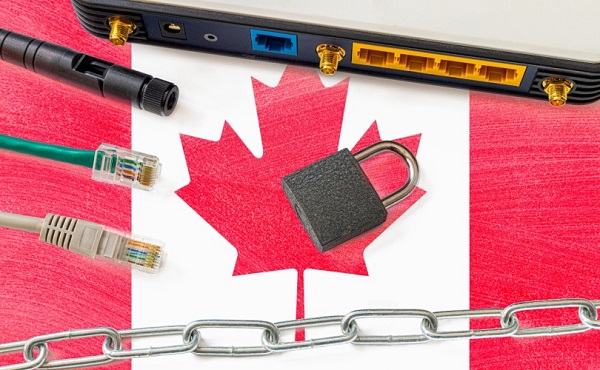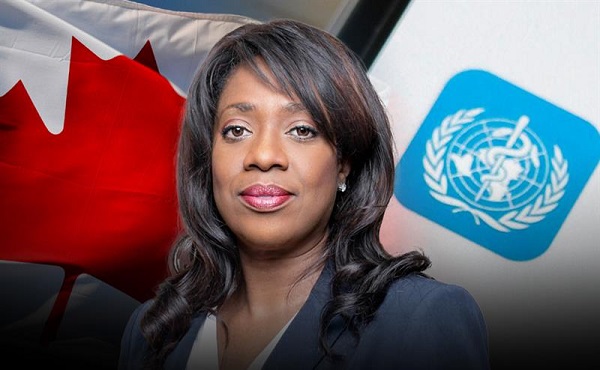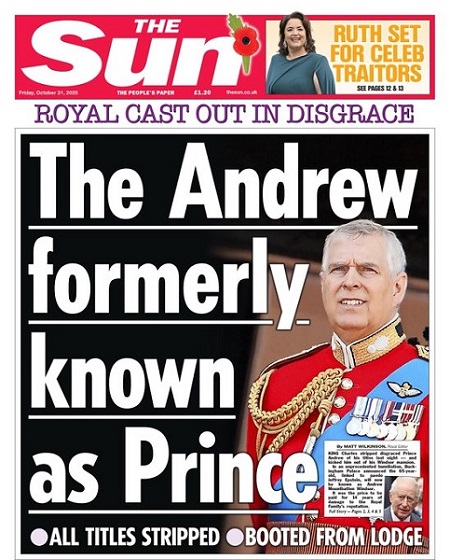MAiD
Canada’s euthanasia regime is already killing the disabled. It’s about to get worse

From LifeSiteNews
Even the UN has described Canada’s assisted suicide program as ‘state-sponsored eugenics’ and called upon the government to curtail plans to expand euthanasia access.
In Canada, we kill the disabled. Over 90 percent of babies diagnosed with Down syndrome in the womb are aborted; pre-born children diagnosed with other disabilities usually meet the same fate. But for decades, our Nazi-style lethal ableism was limited to those not yet born.
With the expansion of euthanasia eligibility to those suffering solely from disability or mental illness scheduled to come into effect in 2027, that is slated to change. Disability groups have been nearly unanimous in their condemnation of this plan, which has been delayed twice by the Liberal government due to pushback from across Canadian society – but not cancelled entirely.
Even the United Nations Committee on the Rights of Persons with Disabilities, examining Canada’s compliance with the U.N. Conventions on the Rights of Persons with Disabilities earlier this year, concluded that Canada was embarking on “state-sponsored eugenics” and called on the Canadian government to scrap these plans and roll back the expanding euthanasia regime. The disability rights group Inclusion Canada, as well as several others, had written to the body to sound the alarm about Canada’s euthanasia policies.
Canadians with physical disabilities have been attempting to get the government’s attention for years, with stories of those who seeking euthanasia because they cannot get the support or care they need periodically dominating international headlines. (This ugly reality is best encapsulated in a famous cartoon showing stairs leading to a healthcare provider, with the only wheelchair ramp leading to “euthanasia.”) These stories have not yet been heeded by the government.
A story recently posted to X by Samantha Smith, a victim advocate and survivor of the grooming and rape gangs in the U.K., highlights Canada’s grim slippery slope. It is worth reading in full:
A family member of mine is a nurse in Canada. They performed several assisted dying procedures at the care home they worked at, before refusing to continue. In one case, the family of a mentally disabled man decided they wanted him to be euthanised. He didn’t want to die. But my family member was legally forced to end his life. They held his hand while he told them “I’m hungry” and “I’m thirsty.”
That poor man didn’t understand what was happening to him as he was pumped full of medication that would end his life, and my family member wept for the soul that was being lost unnecessarily. He wasn’t terminally ill. He wasn’t particularly old. He wasn’t dying. He didn’t want to die. But he didn’t have a choice. Because his life was deemed dispensable by his family, and the Government gave them the power to end his life regardless of his needs or wishes.
And when my family member told their workplace that they couldn’t continue performing these procedures – that their conscience wouldn’t allow it – they were told that it was their “legal duty” as a nurse. They still refused. But not everyone will have the moral fibre or bravery of my family member.
The road to hell is paved with good intentions, and this is exactly what the Assisted Dying Bill opens the door to. It starts with “choice” and “dignity.” But suicide isn’t only done “when the patient wants it.” And the countries where it is already legalised have shown us the grim reality. In the Netherlands, 40% of euthanasia deaths occur without patient consent. In Canada, it has been offered to Paralympians who only asked for a mobility aid. If it can happen there; it will happen here. People will be killed against their will.
When asked for public corroboration, Smith stated: “No, my family member will not ‘go public.’ Yes, I trust his testimony. No, he is not a horrible, awful person. Yes, this is really happening. The black letter law vs. the grim reality are two very different things. Just because the law was supposed to protect against coercion or non-consenting procedures … doesn’t mean it is.”
I wish I didn’t believe her, but I do. I believe her because euthanasia providers have ended the lives of people like Alan Nichols, who was taken to the hospital by family members after a psychiatric episode and euthanized days later. I believe her because leaked documents show that Ontario’s euthanasia providers have tracked 428 cases of possible criminal violations without a single case being referred to law enforcement. I believe her because Canada’s medical establishment already embraces lethal ableism, and our government does too.
Canada is already killing those with disability or mental illness; thus far, euthanasia practitioners are forced to come up with other reasons for doing so (the written reason for Alan Nichols’ lethal injection was “hearing loss”). But once eligibility requirements are expanded in 2027, the floodgates will open. There is still time to stop this expansion, and we must doing everything we can to do so. The lives of people with disabilities depend on it.
MAiD
Study promotes liver transplants from Canadian euthanasia victims

From LifeSiteNews
A new study encourages transplants from euthanasia donors, saying that harvesting the organs of people killed by euthanasia has a ‘real impact’ on organ supply.
A concerning new study shows that liver transplants from euthanasia donors yield similar results as those from other donations, a finding that could increase pressure to euthanize vulnerable Canadians.
On October 26, the Journal of Hepatology published research comparing liver transplants in Canada from donations after circulatory death – a problematic method of organ donation – and from donations of those who were euthanized, in the latest study into increasing organ transplants from euthanasia or so-called “medical assistance in dying” (“MAID”) victims.
“Our study provides the first large-scale Canadian experience, paralleling previous studies from Belgium and the Netherlands, showing that outcomes are positive, while also demonstrating the real impact that MAiD donation can have on the availability of organs,” co-lead investigator A.M. James Shapiro declared.
“While not all individuals pursuing MAiD are suitable for donation for various reasons, we hope that our study will allow a better understanding of the potential role of organ donation following MAiD,” he continued.
Shapiro highlighted, in his view, “how impactful it can be for saving lives of many people in their final act of generosity.”
Canada is one of few countries, alongside Australia, Belgium, Spain, and the Netherlands, that harvests organs from euthanasia victims. Under the Liberal government, Canada has become the world leader in organ donations from people who obtained state-sanctioned euthanasia.
Recently, the interest in the practice has boomed, after the heart of a euthanized Canadian man was successfully harvested and donated to an American man with heart failure.
While many Canadians are left without necessary healthcare and even goaded to end their lives through euthanasia, the Liberal-run health system appears to prioritize the lucrative business of harvesting organs from Canadians killed off by their euthanasia regime.
According to some estimates, a heart is “worth around $1 million in the U.S. Livers come in second, about $557,000, and kidneys cost about $262,000 each. Not to speak about human skin ($10/inch), stomach ($500), and eyeballs ($1,500 each).”
Additionally, as LifeSiteNews has extensively covered, health officials have sounded the alarm over organs being harvested from still living patients in order to obtain fresh organs for transplants.
Similarly, conservative Irish think tank academic Dr. Angelo Bottone has warned against a push to harvest organs from euthanasia victims before they are killed.
“While donation after euthanasia is already happening in those countries, doctors are now discussing harvesting organs before euthanasia patients are declared dead, in order to preserve organ viability,” Bottone wrote.
“They propose that organs be removed under general anaesthesia before the patient is declared dead, thereby maintaining continuous blood circulation and oxygenation to the organs until the moment of retrieval,” the scholar continued. “This method could significantly improve the quality and quantity of organs available for transplantation.”
The most recent reports show that euthanasia is the sixth highest cause of death in Canada. However, it was not listed as such in Statistics Canada’s top 10 leading causes of death from 2019 to 2022.
Asked why euthanasia was left off the list, the agency said that it records the illnesses that led Canadians to choose to end their lives via euthanasia, not the actual cause of death, as the primary cause of death.
According to Health Canada, in 2022, 13,241 Canadians died by lethal euthanasia injections. This accounts for 4.1 percent of all deaths in the country for that year, a 31.2 percent increase from 2021.
Brownstone Institute
The Doctor Will Kill You Now

From the Brownstone Institute
Way back in the B.C. era (Before Covid), I taught Medical Humanities and Bioethics at an American medical school. One of my older colleagues – I’ll call him Dr. Quinlan – was a prominent member of the faculty and a nationally recognized proponent of physician-assisted suicide.
Dr. Quinlan was a very nice man. He was soft-spoken, friendly, and intelligent. He had originally become involved in the subject of physician-assisted suicide by accident, while trying to help a patient near the end of her life who was suffering terribly.
That particular clinical case, which Dr. Quinlan wrote up and published in a major medical journal, launched a second career of sorts for him, as he became a leading figure in the physician-assisted suicide movement. In fact, he was lead plaintiff in a challenge of New York’s then-prohibition against physician-assisted suicide.
The case eventually went all the way to the US Supreme Court, which added to his fame. As it happened, SCOTUS ruled 9-0 against him, definitively establishing that there is no “right to die” enshrined in the Constitution, and affirming that the state has a compelling interest to protect the vulnerable.
SCOTUS’s unanimous decision against Dr. Quinlan meant that his side had somehow pulled off the impressive feat of uniting Antonin Scalia, Ruth Bader Ginsberg, and all points in between against their cause. (I never quite saw how that added to his luster, but such is the Academy.)
At any rate, I once had a conversation with Dr. Quinlan about physician-assisted suicide. I told him that I opposed it ever becoming legal. I recall he calmly, pleasantly asked me why I felt that way.
First, I acknowledged that his formative case must have been very tough, and allowed that maybe, just maybe, he had done right in that exceptionally difficult situation. But as the legal saying goes, hard cases make bad law.
Second, as a clinical physician, I felt strongly that no patient should ever see their doctor and have to wonder if he was coming to help keep them alive or to kill them.
Finally, perhaps most importantly, there’s this thing called the slippery slope.
As I recall, he replied that he couldn’t imagine the slippery slope becoming a problem in a matter so profound as causing a patient’s death.
Well, maybe not with you personally, Dr. Quinlan, I thought. I said no more.
But having done my residency at a major liver transplant center in Boston, I had had more than enough experience with the rather slapdash ethics of the organ transplantation world. The opaque shuffling of patients up and down the transplant list, the endless and rather macabre scrounging for donors, and the nebulous, vaguely sinister concept of brain death had all unsettled me.
Prior to residency, I had attended medical school in Canada. In those days, the McGill University Faculty of Medicine was still almost Victorian in its ways: an old-school, stiff-upper-lip, Workaholics-Anonymous-chapter-house sort of place. The ethic was hard work, personal accountability for mistakes, and above all primum non nocere – first, do no harm.
Fast forward to today’s soft-core totalitarian state of Canada, the land of debanking and convicting peaceful protesters, persecuting honest physicians for speaking obvious truth, fining people $25,000 for hiking on their own property, and spitefully seeking to slaughter harmless animals precisely because they may hold unique medical and scientific value.
To all those offenses against liberty, morality, and basic decency, we must add Canada’s aggressive policy of legalizing, and, in fact, encouraging industrial-scale physician-assisted suicide. Under Canada’s Medical Assistance In Dying (MAiD) program, which has been in place only since 2016, physician-assisted suicide now accounts for a terrifying 4.7 percent of all deaths in Canada.
MAiD will be permitted for patients suffering from mental illness in Canada in 2027, putting it on par with the Netherlands, Belgium, and Switzerland.
To its credit, and unlike the Netherlands and Belgium, Canada does not allow minors to access MAiD. Not yet.
However, patients scheduled to be terminated via MAiD in Canada are actively recruited to have their organs harvested. In fact, MAiD accounts for 6 percent of all deceased organ donors in Canada.
In summary, in Canada, in less than 10 years, physician-assisted suicide has gone from illegal to both an epidemic cause of death and a highly successful organ-harvesting source for the organ transplantation industry.
Physician-assisted suicide has not slid down the slippery slope in Canada. It has thrown itself off the face of El Capitan.
And now, at long last, physician-assisted suicide may be coming to New York. It has passed the House and Senate, and just awaits the Governor’s signature. It seems that the 9-0 Supreme Court shellacking back in the day was just a bump in the road. The long march through the institutions, indeed.
For a brief period in Western history, roughly from the introduction of antibiotics until Covid, hospitals ceased to be a place one entered fully expecting to die. It appears that era is coming to an end.
Covid demonstrated that Western allopathic medicine has a dark, sadistic, anti-human side – fueled by 20th-century scientism and 21st-century technocratic globalism – to which it is increasingly turning. Physician-assisted suicide is a growing part of this death cult transformation. It should be fought at every step.
I have not seen Dr. Quinlan in years. I do not know how he might feel about my slippery slope argument today.
I still believe I was correct.
-

 Business2 days ago
Business2 days agoBill Gates walks away from the climate cult
-

 Internet2 days ago
Internet2 days agoMusk launches Grokipedia to break Wikipedia’s information monopoly
-

 Alberta1 day ago
Alberta1 day agoNobel Prize nods to Alberta innovation in carbon capture
-

 Banks1 day ago
Banks1 day agoBank of Canada Cuts Rates to 2.25%, Warns of Structural Economic Damage
-

 Censorship Industrial Complex2 days ago
Censorship Industrial Complex2 days agoPro-freedom group to expose dangers of Liberal ‘hate crime’ bill before parliamentary committee
-

 Business15 hours ago
Business15 hours agoCanada’s attack on religious charities makes no fiscal sense
-

 Health2 days ago
Health2 days agoLeslyn Lewis urges Canadians to fight WHO pandemic treaty before it’s legally binding
-

 International4 hours ago
International4 hours agoPrince Andrew banished from the British monarchy












